
COMMUNITY SCIENCE
Participate in conservation science in your community!
CURRENT PROJECTS
We share the Pacific Northwest with an astounding array of wildlife who inspire many unanswered questions, like…as the PNW heats up, how do frogs fare? Where do local bats like to snack and snooze? How do bobcats and coyotes navigate our ever-expanding cities? That’s where you come in! Volunteer researchers like you act as scientists to gather a wealth of data about the amazing wildlife right here at home. Your community science efforts help us better understand, conserve and coexist with the wildlife who also call the PNW home. Even better, we make the data you gather publicly available so that anyone can use it!
Maybe you want to gain hands-on experience with non-invasive research practices or new technologies. Perhaps you want to help with wildlife conservation from your computer. Or maybe you just want motivation to get out in nature once a month! Whatever your reason, we have a community science opportunity for you! Join us!
Woodland Park Zoo’s Living Northwest conservation program prioritizes participatory, inclusive opportunities so that everyone can take an active role in Pacific Northwest wildlife monitoring and conservation. See below for more details on our Community Science strategy. If you need an accommodation to fully participate in any of these programs, please contact us at monitoring@zoo.org to discuss possibilities.
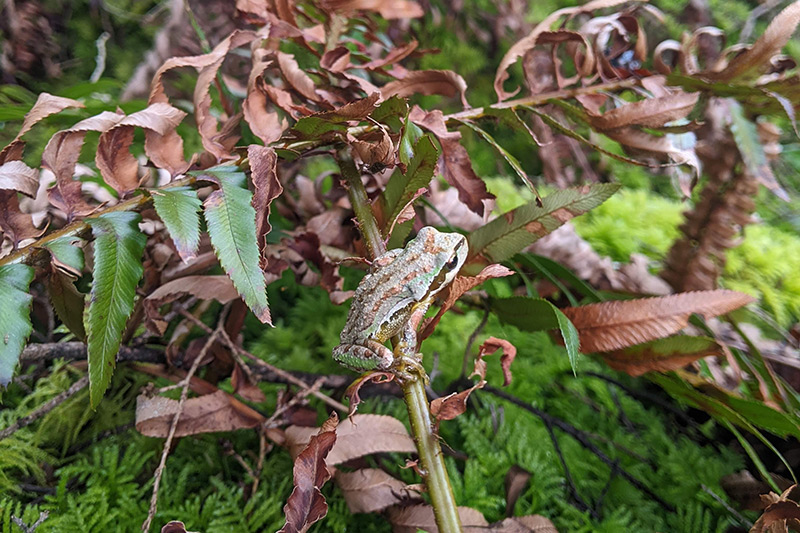
Amphibian Monitoring
Who: 12 years and older
What: Wade in wetlands, take photos, submit data
When: January – July, training in January
Join a team of fellow amphibian enthusiasts once a month to monitor when and where frogs and salamanders are breeding in Snohomish and King counties. The more we learn, the better we can protect the vanishing wetlands of Washington and their amphibian inhabitants.
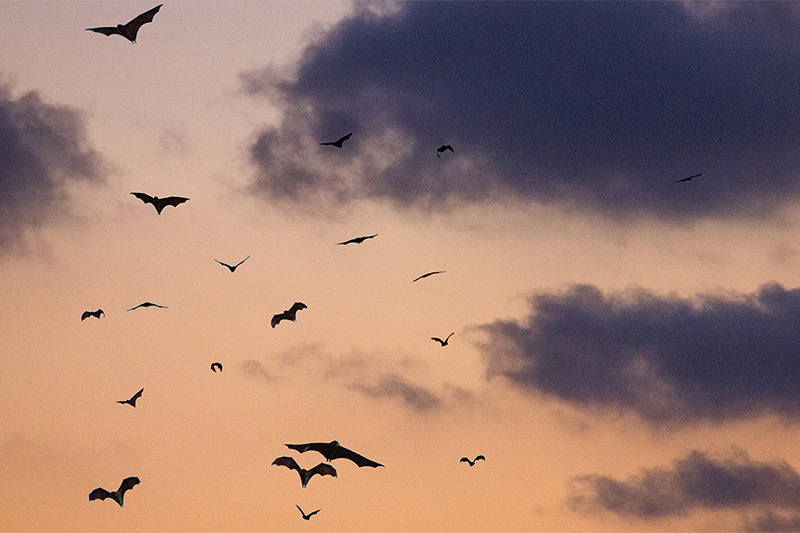
Bat Activity Trends
Who: All ages
What: Observe the night sky for bats, submit data
When: July-September, 30 minutes after sunset from anywhere you can see the sky
Do you ever wonder…why are bats important? Where do they live? Are there bats in my neighborhood? How do I tell a bird from a bat at night? Learn the answers to these questions and help us answer the question: Where and when are bats active around Washington?
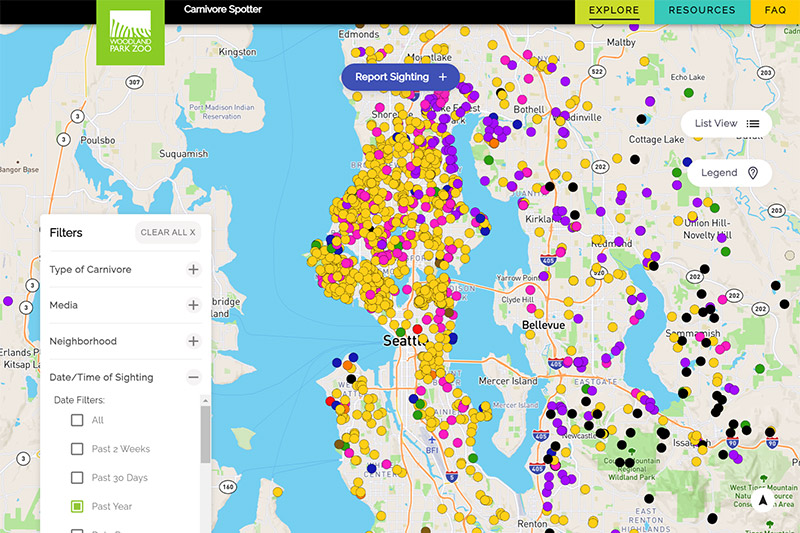
Carnivore Spotter
Seattle Urban Carnivore Project
Who: All ages
What: Submit observations of urban carnivores
When: Any time
Share your photos and videos on Carnivore Spotter of black bear, bobcat, cougar/mountain lion, coyote, opossum, raccoon, river otter and red fox. Help expand our understanding of how urban carnivores live and interact with people across urban and suburban areas in the Seattle region and explore sightings on the map to learn about your wildlife neighbors. No account needed! (For the best experience, please use Carnivore Spotter in Chrome or Firefox.)
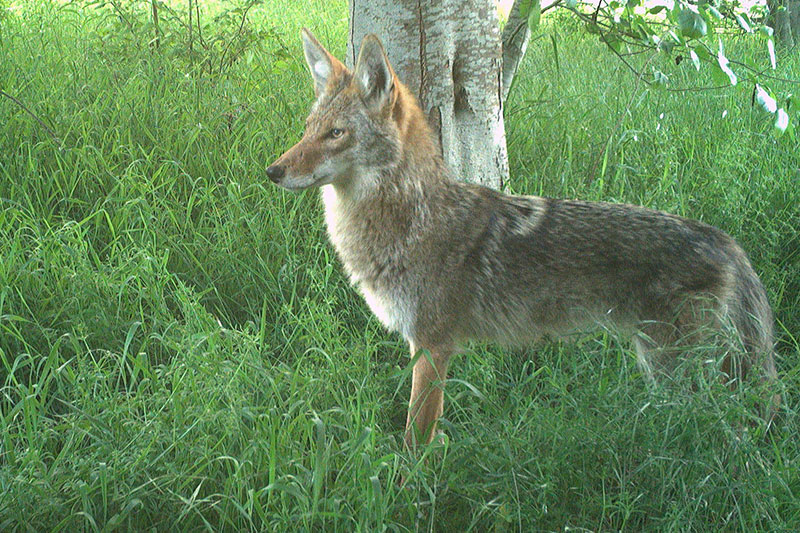
Camera Trapping
Seattle Urban Carnivore Project
Who: 9 years and older
What: Hike to site, maintain a motion-triggered camera, submit data
When: Year-long, training in March
Join a team of fellow carnivore fans for monthly visits to check a wildlife camera trap. Help us to explore how mammalian carnivores, such as coyotes, raccoons, bobcats, and even cougars and bears live and interact with people across urban and suburban areas in the Seattle region.
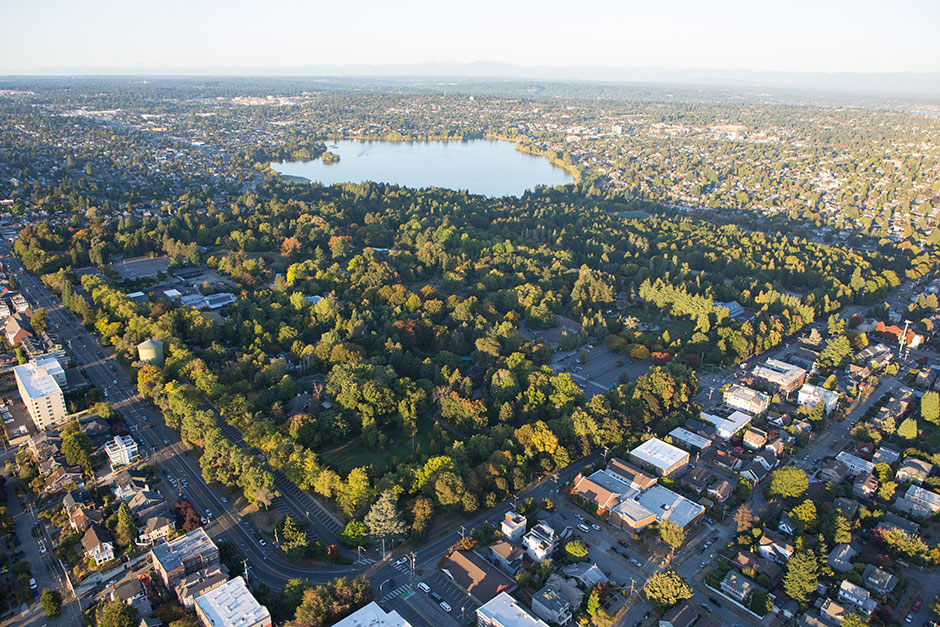
City Nature Challenge
Who: All ages
What: Take photos, submit data, identify images
When: Last Friday in April through the following Monday
Woodland Park Zoo is thrilled to help mobilize people across the Seattle-Tacoma metropolitan area to join the City Nature Challenge – a nature observation event using the iNaturalist app. Explore independently or join an event to connect with wildlife near you. Show the world how biodiverse our region is by making observations and identifications during this global bioblitz!
STRATEGY
Woodland Park Zoo’s Living Northwest program embraces participatory, inclusive conservation (often called “community science”) that provides everyone with opportunities to take an active role in Pacific Northwest wildlife monitoring and conservation. We leverage new technologies to engage community science volunteers in noninvasive wildlife monitoring in the field and online. Community science volunteers help us generate valuable data to elucidate patterns and trends on the distribution, abundance and movements of Pacific Northwest wildlife. While doing so, participants gain relevant science and conservation skills and develop a deeper appreciation for local biodiversity.
For conservation efforts to effectively sustain wildlife and people, it is critical that the efforts involve the communities most directly affected, and that the results make it into the hands of decision-makers who can implement local actions. Further, zoos and aquariums around the world draw large and diverse audiences. These audiences, and our community partners, provide us with opportunities and a responsibility to expand and diversify the “face” of wildlife conservation. Woodland Park Zoo works within our local communities to offer a range of participatory wildlife conservation opportunities that are designed to energize, engage, and mobilize people to advance the zoo’s mission to save wildlife and inspire everyone to make conservation a priority in their lives. Together we build conservation community in ways that embrace equity, diversity, inclusion and access.
If you would like further information or have questions about Woodland Park Zoo’s community science programs, contact us at monitoring@zoo.org.
PAST PROJECTS
Otter Spotter
River otters are sentinels of ecological health found in water systems all over Washington state. From 2016 to 2019, we asked for your help to spot them!